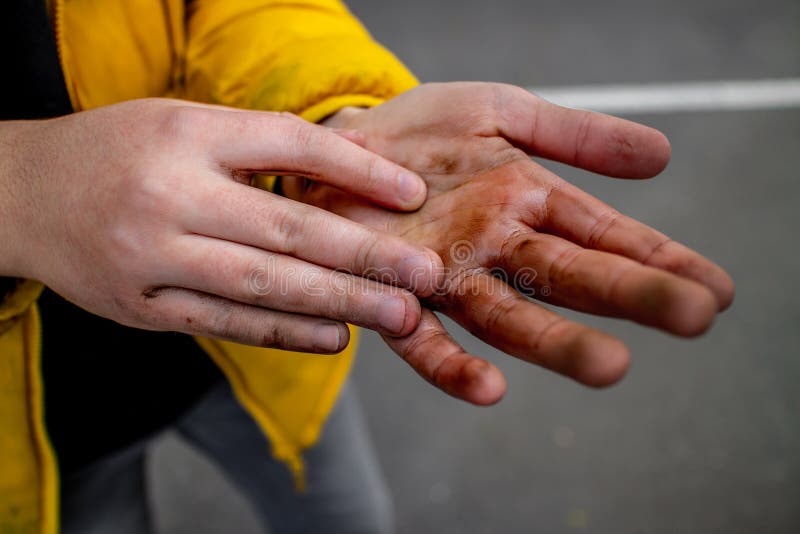

Dirty hotels are a significant concern for travelers, affecting their well-being and potentially harming the tourism industry as a whole. This article delves into the pervasive issue of unsanitary conditions in hotels, highlighting the causes, effects, and solutions for addressing hygiene concerns. We’ll also discuss how to recognize potential problems before booking and what steps to take when confronted with a dirty hotel. We’ll examine the impact on the traveler experience and industry reputation, offering practical strategies for tackling this problem.
Understanding the Root Causes of Unsanitary Conditions
Inadequate Cleaning Practices
Inadequate cleaning procedures and insufficient frequency are common culprits behind dirty hotels. A lack of standardized cleaning protocols, coupled with insufficient cleaning staff or their poor training, often leads to inconsistent and sub-par hygiene levels. In many cases, hotels either understaff or don’t adequately train their cleaning staff in proper cleaning and sanitation practices.
Lack of Maintenance
Maintenance problems can significantly contribute to unsanitary conditions. Broken plumbing, clogged drains, or insufficient waste management systems can create hazardous environments. For example, a leaky pipe in a guest room can create a breeding ground for mold and bacteria, potentially posing significant health risks to guests. The need for regular and thorough maintenance cannot be overstated.
Insufficient Cleaning Supplies
Lack of proper cleaning supplies, including disinfectant solutions and appropriate tools, can impede efficient and effective hygiene protocols. A shortage of these crucial tools can quickly lead to compromises in standards. The right cleaning solutions and tools are critical, not just for a clean hotel environment, but also for the preservation of the hotel’s reputation and the health of its guests.
Identifying Potential Problems Before Booking
Utilizing Online Reviews and Ratings
Leveraging online resources such as TripAdvisor, Booking.com, and Google reviews can provide valuable insights into a hotel’s cleanliness standards. Paying attention to detailed descriptions of cleanliness and sanitation from previous guests is key. Reading and paying attention to reviews should always be part of the decision-making process.
Verifying Hygiene Certifications
Some hotels have certifications for their commitment to maintaining high hygiene standards. If you can, search for these certifications to determine their overall quality and trustworthiness. This is part of a diligent approach to booking and can save you time and energy in the future.
Checking for Specific Complaints
Read through specific complaints from past guests, looking for recurring themes related to dirty conditions. These may include complaints about poor housekeeping, clogged drains, or other signs of inadequate cleanliness.
Addressing Hygiene Concerns During Your Stay
Documenting Evidence
If you encounter issues, it’s crucial to document everything thoroughly. Take clear photos and videos of any unsanitary conditions. Detailed notes outlining the location and nature of the problem are essential, too. These records serve as strong evidence if you need to contact management or file a complaint. By documenting everything, you can clearly and effectively communicate the problems encountered.
Communicating Your Concerns Effectively
Contact hotel management promptly and politely, outlining your concerns. Clearly describe the issues and the locations involved. Maintain a civil and respectful tone. Remember that clear and effective communication can greatly improve the odds of successfully resolving the issue. Be prepared to provide documentation as proof of the problems encountered.
Taking Further Action if Needed
If the hotel doesn’t address the situation to your satisfaction, consider escalating the issue. Contact your travel agent, your credit card company, or relevant authorities. The next step depends on the severity of the problem. Ultimately, your safety and well-being should be paramount in these situations.
The Impact on Traveler Experience and Industry Reputation
Negative Impact on Travelers
Dirty hotels can significantly affect the travel experience, causing discomfort, stress, and even health issues. The presence of unsanitary conditions can damage a traveler’s overall perception of the destination and hospitality industry. A clean and healthy environment is an essential part of the travel experience and should be a priority for hotels.
Damage to Industry Reputation
Unsanitary hotels can severely damage the reputation of the entire hospitality industry. Negative reviews and word-of-mouth can discourage potential guests and harm the economic well-being of tourism-dependent communities. Maintaining a positive image is essential to the success of a hotel’s and the overall hospitality industry’s reputation.
Preventive Measures
Hotels can implement preventive measures such as regular cleaning and sanitation checks, rigorous staff training, and robust quality control measures to maintain a positive image.
Implementing Solutions for Maintaining Cleanliness
Regular Cleaning and Sanitation Checks
Implementing standardized cleaning protocols and ensuring frequent checks of hygiene standards are critical. Routine checks of rooms and public areas can guarantee consistency. This includes regular inspections by management to ensure standards are being followed.
Staff Training and Development
Provide thorough training and education on proper cleaning techniques and sanitation protocols for hotel staff. Regular refreshers are important. Create an ongoing commitment to staff development in order to maximize efficiency and consistency.
Technology and Modernization
Consider using technology to enhance cleanliness, such as smart cleaning solutions and automated sanitation systems. Modernizing these systems will ensure effectiveness and efficiency.
Frequently Asked Questions
What are the common causes of dirty hotels?
Several factors contribute to dirty hotel environments. Poor housekeeping practices, inadequate cleaning supplies, insufficient staff training, and infrequent checks of hygiene standards are common culprits. Furthermore, inadequate waste disposal and maintenance problems can all lead to unsanitary conditions. Unmonitored staff turnover can lead to a lack of consistent cleaning procedures. Management should implement policies and procedures for monitoring staff training and adherence to hygiene standards, including implementing a robust reporting system for guests to promptly report problems.
How can I identify a dirty hotel before booking?
Thorough research is key. Look beyond the glossy hotel marketing materials. Utilize online reviews, especially focusing on detailed accounts of hygiene and cleanliness. Images and videos uploaded to social media platforms, such as Instagram and TikTok, can provide a quick, visual assessment. Checking for hygiene certifications or awards can give you an idea of the hotel’s commitment to maintaining high standards. Consider contacting previous guests if possible. Ultimately, a combination of meticulous research and your intuition can help you avoid booking a dirty hotel.
What steps can I take if I encounter a dirty hotel during my stay?
If you encounter unsanitary conditions during your stay, document everything with photos and notes. Contact the hotel management directly with your concerns. Explain the situation politely and clearly. Be prepared to offer your proof as well as detailed descriptions of the problem. If the hotel management doesn’t respond or fails to resolve the issue, consider contacting your travel agent or your credit card company to file a complaint. By acting promptly and diligently, you can take action and minimize potential negative consequences.
In conclusion, dirty hotels pose a significant threat to traveler well-being and industry reputation. By understanding the root causes of unsanitary conditions and adopting preventive measures, both hotels and guests can work together to ensure a hygienic and pleasant travel experience. The next step for travelers is to thoroughly research hotel reviews and ratings, look for specific hygiene certifications, and utilize online resources to make informed decisions. Hotels, on the other hand, should prioritize regular cleaning and sanitation checks, invest in staff training, and adopt robust quality control measures to maintain cleanliness and maintain high standards. By fostering a culture of cleanliness and transparency, we can all contribute to a healthier and safer travel environment.